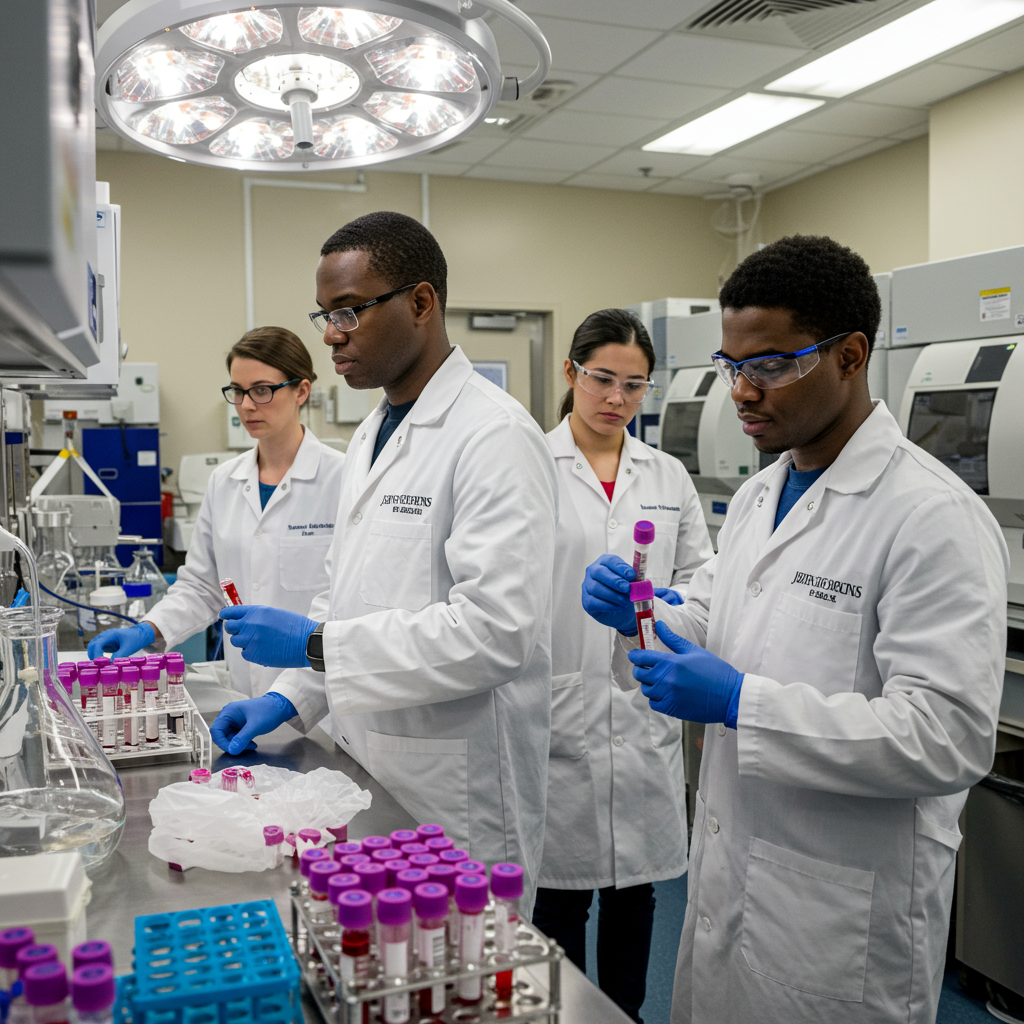Cancer remains a formidable health challenge globally, claiming millions of lives each year. A critical factor in improving outcomes is detecting the disease as early as possible, ideally before symptoms even begin. Now, researchers at Johns Hopkins have achieved a significant breakthrough with a new type of blood test showing the potential to do just that – spotting signs of cancer years before a clinical diagnosis.
A Game-Changing Approach to Early Detection
The cutting-edge technology, known as a multicancer early detection (MCED) test, works by identifying tiny fragments of mutated DNA that tumors shed into the bloodstream. This circulating tumor DNA (ctDNA) can act as a molecular “fingerprint” of cancer, present long before a tumor grows large enough to cause symptoms or be detected by current imaging or screening methods.
Analyzing these complex genetic signals requires advanced techniques. Researchers used ultra-sensitive sequencing in their study. Experts also highlight that interpreting the intricate patterns of biomarkers in blood samples, especially those present at very low levels years before diagnosis, often necessitates the power of Artificial Intelligence (AI) to find signals invisible to human analysis.
The Study: Looking Back to Detect Early Signs
To evaluate the test’s potential, the Johns Hopkins team, led by Dr. Yuxuan Wang, analyzed stored blood samples. These samples came from participants in a large, long-running National Institutes of Health-funded cardiovascular health project (the ARIC study).
The researchers examined samples from 52 individuals from the study cohort. Half of these individuals (26) were later diagnosed with cancer within six months of their blood sample being taken, while the other half remained cancer-free.
When the MCED test was run on the initial blood samples, it successfully detected signs of cancer in 8 of the 26 individuals who would later be diagnosed within that six-month window.
Finding Cancer Years in Advance
The most compelling finding emerged when researchers accessed even older blood samples available for six of these eight participants. Astonishingly, in four of these six cases, the MCED test found early signs of cancer lurking in samples taken more than three years before the individual received their official clinical diagnosis. This timeframe ranged specifically from 3.1 to 3.5 years before diagnosis in some cases.
“Three years earlier provides time for intervention,” stated Dr. Wang. Detecting tumors at such an early stage means they are likely much less advanced and significantly more likely to be curable, offering patients a better chance at beating the disease.
Dr. Bert Vogelstein, a senior author on the study, noted that this research not only demonstrates the immense promise of MCED tests for very early detection but also helps establish the benchmark sensitivity levels required for these tests to succeed in catching cancer at its earliest stages. Some samples showed detectable DNA changes at levels much lower than those found closer to diagnosis, providing targets for future test development.
Why Early Detection Matters
The difference early detection can make is starkly illustrated by survival rates. For instance, the five-year survival rate for breast cancer is 99% when caught early, but plummets to less than 32% once the disease has spread significantly, according to the American Cancer Society.
Despite advancements in treatment, cancer remains a major cause of death. In the US alone, experts estimate over 2 million new cancer cases (excluding non-melanoma skin cancers) and more than 618,000 deaths in 2025, breaking down to roughly 1,700 deaths every single day. Globally, cancer was responsible for 9.7 million deaths in 2022. Catching cancer before it has spread is paramount.
Complementing, Not Replacing, Standard Screening
It’s important to understand that MCED blood tests are not intended to replace existing standard screenings like mammography, colonoscopy, or Pap tests, which remain crucial tools. Instead, they are envisioned as a complementary approach that could play a vital role in identifying cancers earlier, particularly those that are currently difficult to detect until they are more advanced, such as colon cancer.
Ultimately, these tests could potentially become part of routine, proactive health monitoring, similar to how blood pressure or cholesterol are checked during annual physicals, allowing doctors to identify potential issues even in seemingly healthy individuals.
The Road Ahead: Challenges and Future Potential
While the study’s findings are incredibly promising, MCED tests are not yet widely available or fully approved by regulatory bodies like the FDA for general screening. Some are currently available under less stringent rules as Laboratory Developed Tests.
Several challenges remain. Researchers need to determine the appropriate clinical follow-up steps for individuals who receive a positive test result. Ensuring high accuracy to avoid false positives and unnecessary procedures is crucial. Factors like cost and insurance coverage also need to be addressed for widespread adoption. Additionally, researchers are working to understand how these tests perform across different cancer types, as varying tumors may release different amounts or patterns of DNA. Overcoming barriers to accessing diverse patient data is also key for training advanced analytical tools, like AI.
Despite these hurdles, the potential for a simple blood test to detect cancer years before symptoms appear offers a beacon of hope, potentially revolutionizing cancer screening and saving countless lives by enabling intervention when treatment is most effective. Ongoing research aims to refine this technology and bring it closer to widespread clinical use.
References
- nypost.com
- wccftech.com
- www.earth.com
- <a href="https://nypost.com/health/ulo-wants-to-help-men-get-their-edge-back-with-trt/?utmcampaign=nypost&utmmedium=referral”>nypost.com
- www.bbc.com




